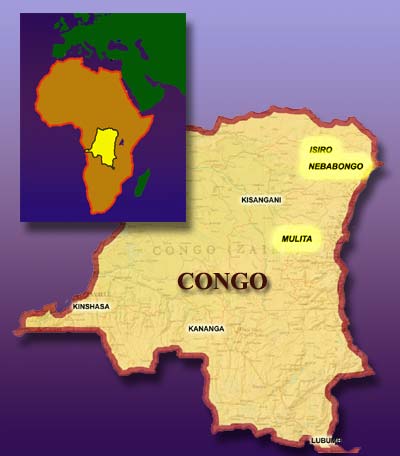Congo offensive sparks more killings, sexual violence: UN
 Kinshasa/Geneva - A United Nations-backed operation to flush out Rwandan and Ugandan rebels from eastern Democratic Republic of Congo has sparked a sharp rise in killings and sexual violence since February, a UN special investigator said Thursday.
Kinshasa/Geneva - A United Nations-backed operation to flush out Rwandan and Ugandan rebels from eastern Democratic Republic of Congo has sparked a sharp rise in killings and sexual violence since February, a UN special investigator said Thursday.
"(Operation) Kimia II has spawned a human rights disaster while its military successes remain unclear," Philip Alston, the UN Special Rapporteur on extrajudicial executions, told journalists in Kinshasa at the end of an 11-day trip to the central African country.
"MONUC (the UN peacekeeping force in DR Congo) and the national army must change their strategy to assure these grave errors are not repeated."
The operations are aimed at snuffing out the Ugandan group Lord's Resistance Army (LRA) and the Rwandan Hutu group FDLR. The latter was formed by militia who fled Rwanda after taking part in the 1994 genocide and has played a role in the DR Congo's ongoing unrest for over a decade.
However, civilians have borne the brunt of revenge attacks by the two rebel groups.
Alston said that Congolese troops have also killed innocent civilians, and he demanded an investigation into one particular incident.
"Congolese soldiers shot and beat to death at least 50 Rwandan Hutu refugees, and burnt their camp to the ground in an attack in April 2009," Alston wrote in his report.
"Some 40 women were abducted from the camp," he added, going on to describe in graphic details rapes and mutilation, based on the testimonies of 10 women.
Alston said that the operations - which aid groups have already blasted - were so badly carried out that the FDLR was able to re-enter villages abandoned by the Congolese and UN forces and commit brutal retaliation massacres.
He also criticized MONUC for becoming a party to the conflict and thus compromising its own ability to investigate abuses.
Another rebel group - the Tutsi-dominated CNDP, which caused havoc with a major military offensive last year - has been integrated into the army, and Alston said this had only made an undisciplined military worse.
"The FARDC (Congolese army) is a melange of militias which are badly trained, poorly disciplined and have no regard for human rights," he said. "The rapid integration process of former CNDP rebels and its resultant situation is unacceptable."
In one of his six recommendations, Alston called for Congolese troops to be required to wear uniforms that identify their individual names and unit affiliation. This, he said, should be made a precondition of UN assistance.
He also dismissed government claims that the LRA, which gained notoriety for hacking off the noses and ears of civilians in its decades-long rebellion, had been driven out of DR Congo's northern Orientale province bordering Southern Sudan and Uganda.
"The sad reality is that the LRA is still very much in business," he said. "Far from being finished off, the LRA has turned itself into a regional problem that now requires a regional solution."
The nine-page report comes just a day before the head of MONUC, Alan Doss, was due to attend a UN Security Council briefing in New York.
Alston said that he was unable to present his findings to President Joseph Kabila and other top government and army officials.
A "repressive state apparatus" in some areas also prevented meetings with witnesses and victims, Alston said. dpa